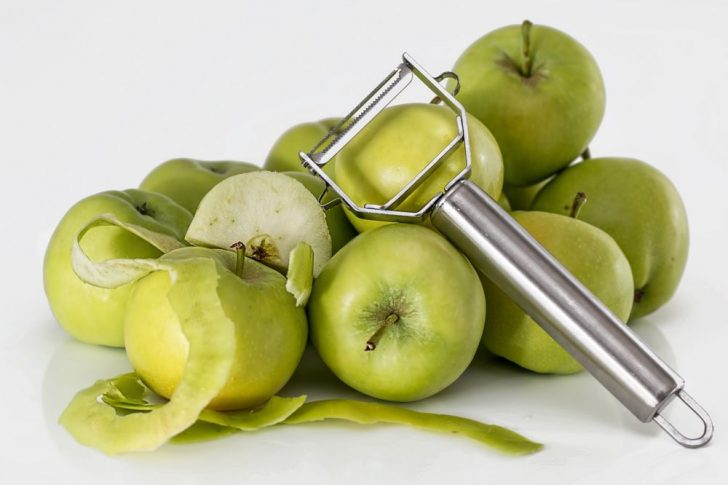PCOS Diet: A Comprehensive Guide to Managing Polycystic Ovary Syndrome

Introduction to PCOS Diet
Polycystic ovary syndrome (PCOS) is a hormonal disorder that affects many women globally. One of the most effective ways to manage PCOS is through dietary changes. In this article, we will provide an in-depth overview of the PCOS diet, its various types, popular choices, and quantitative measurements. Additionally, we will discuss the differences among PCOS diets and explore their historical pros and cons. Whether you are newly diagnosed or seeking ways to enhance your current PCOS diet plan, this article aims to provide you with the guidance you need.
I. Overview of PCOS Diet

PCOS diet is a specific eating plan tailored for individuals who have polycystic ovary syndrome. It primarily focuses on regulating insulin levels and managing hormone imbalances related to PCOS. The underlying principle behind the PCOS diet is to optimize nutrition and promote weight management, which can alleviate symptoms and improve overall health.
II. Types of PCOS Diets and Their Popularity
There are various types of PCOS diets, each with its own unique approach to managing the symptoms of the condition. Here are some popular PCOS diet plans:
1. The Low Glycemic Index (GI) Diet
The low GI diet focuses on consuming foods with a low GI value to prevent sudden spikes in blood sugar levels. This type of diet primarily includes complex carbohydrates, fiber-rich foods, lean proteins, and healthy fats. By stabilizing blood sugar levels, it helps regulate insulin and hormone imbalances in women with PCOS.
2. The Mediterranean Diet
The Mediterranean diet emphasizes consuming fruits, vegetables, whole grains, lean proteins, and healthy fats such as olive oil and nuts. It is known for its anti-inflammatory properties and has been found to improve insulin sensitivity and reduce androgen levels in women with PCOS.
3. The Ketogenic Diet
The ketogenic diet is a low-carbohydrate, high-fat diet that forces the body into a state of ketosis. This type of diet aims to improve insulin resistance and promote weight loss. Although limited research exists on its efficacy for PCOS specifically, some women have reported positive results in terms of weight management and hormonal balance.
III. Quantitative Measurements and PCOS Diet
When following a PCOS diet, it is essential to monitor certain quantitative measurements to assess progress and make necessary adjustments. These measurements can include:
1. Body Mass Index (BMI)
Tracking BMI can help determine whether an individual’s weight is within a healthy range or if weight loss is necessary. Maintaining a healthy weight is vital for managing PCOS symptoms.
2. Blood Sugar Levels
Regularly monitoring blood sugar levels can guide dietary choices and help prevent insulin resistance. Maintaining stable blood sugar levels is crucial for managing PCOS effectively.
3. Hormone Levels
Measuring hormone levels, such as testosterone, estrogen, and progesterone, can provide valuable insights into the hormonal imbalances associated with PCOS. Regular hormone level checks can help healthcare professionals tailor the PCOS diet accordingly.
IV. Discussing Differences Among PCOS Diets
Although PCOS diets share a common goal of managing PCOS symptoms, there are notable differences among them. These differences may stem from the inclusion or exclusion of certain food groups, variations in macronutrient composition, and individual preferences. It is crucial for women with PCOS to choose a diet plan that aligns with their specific needs and preferences.
V. Historic Pros and Cons of PCOS Diets
Over time, PCOS diets have evolved, and various diet plans have risen in popularity. Here is a brief historical overview of the pros and cons associated with PCOS diets:
1. Pros
– PCOS diets can help regulate insulin levels and improve insulin resistance.
– Many PCOS diets emphasize whole, nutrient-dense foods, promoting overall health.
– Weight loss achieved through a PCOS diet can reduce PCOS symptoms and improve fertility.
2. Cons
– Some PCOS diets may be restrictive and challenging to adhere to in the long term.
– Limited evidence exists for the long-term effectiveness of certain PCOS diets.
– Individual responses to different PCOS diets may vary, making it important to find the one that works best for each person.
Conclusion
Managing PCOS through dietary modifications is a promising approach to alleviate symptoms and promote overall well-being. By following a carefully planned PCOS diet, individuals can regulate insulin levels, balance hormones, and improve their quality of life. It is crucial to consult with healthcare professionals to devise a personalized PCOS diet that suits individual needs. Remember, consistency, patience, and a holistic approach are key to achieving long-term success in managing PCOS through diet.
References:
– Insert relevant references here.
FAQ
What are the popular types of PCOS diets?
What are the quantitative measurements for tracking progress on a PCOS diet?
What is the PCOS diet?
Fler nyheter
Linsbyte i Göteborg – en livsförändrande synkorrigering
Introduction to PCOS Diet Polycystic ovary syndrome (PCOS) is a hormonal disorder that affects many women globally. One of the most effective ways to manage PCOS is through dietary changes. In this article, we will provide an in-depth overview of the...
Lotta Alberius
17 april 2024
Dra ut visdomstand – allt du behöver veta
Introduction to PCOS Diet Polycystic ovary syndrome (PCOS) is a hormonal disorder that affects many women globally. One of the most effective ways to manage PCOS is through dietary changes. In this article, we will provide an in-depth overview of the...
Maja Bergman Lindberg
09 april 2024
Smashburgare i Stockholm: En fantastisk upplevelse
Introduction to PCOS Diet Polycystic ovary syndrome (PCOS) is a hormonal disorder that affects many women globally. One of the most effective ways to manage PCOS is through dietary changes. In this article, we will provide an in-depth overview of the...
Maja Bergman Lindberg
06 april 2024
Tandhygienist – förebyggande tandhälsa
Introduction to PCOS Diet Polycystic ovary syndrome (PCOS) is a hormonal disorder that affects many women globally. One of the most effective ways to manage PCOS is through dietary changes. In this article, we will provide an in-depth overview of the...
Veronica Urena
11 mars 2024











